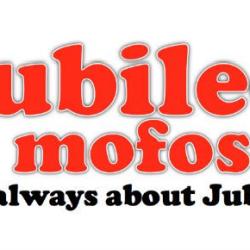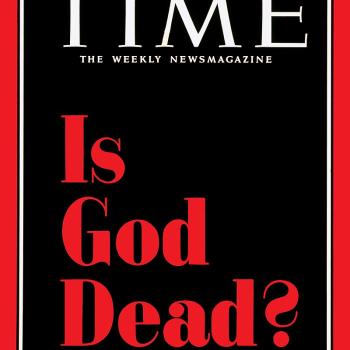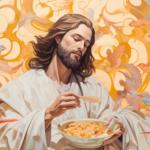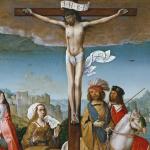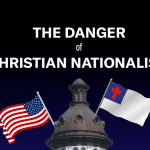I wanted to post that story yesterday, about Texas Catholic schools sticking up for Jews and Muslims, before turning to this one. I don’t want anyone to misread this story as evidence that all Catholics are morally bankrupt, reprehensible people. That’s not the point of this story.
The point of this story is that the leadership of the Catholic church in America — the bishops — is made up of morally bankrupt, reprehensible people.
“Church Puts Legal Pressure on Abuse Victims’ Group,” reports Laurie Goodstein of The New York Times:
Turning the tables on an advocacy group that has long supported victims of pedophile priests, lawyers for the Roman Catholic Church and priests accused of sexual abuse in two Missouri cases have gone to court to compel the group to disclose more than two decades of e-mails that could include correspondence with victims, lawyers, whistle-blowers, witnesses, the police, prosecutors and journalists.
The group, the Survivors Network of those Abused by Priests, known as SNAP, is neither a plaintiff nor a defendant in the litigation. But the group has been subpoenaed five times in recent months in Kansas City and St. Louis, and its national director, David Clohessy, was questioned by a battery of lawyers for more than six hours this year. A judge in Kansas City ruled that the network must comply because it “almost certainly” had information relevant to the case.
The network and its allies say the legal action is part of a campaign by the church to cripple an organization that has been the most visible defender of victims, and a relentless adversary, for more than two decades.
Well, actually it’s not just SNAP and its allies saying that this is “a campaign by the church to cripple … the most visible defender of victims.” It’s also the bishops and their allies saying this:
Lawyers for the church and priests say they cannot comment because of a judge’s order. But William Donohue, president of the Catholic League for Religious and Civil Rights, a church advocacy group in New York, said targeting the network was justified because “SNAP is a menace to the Catholic Church.”
Mr. Donohue said leading bishops he knew had resolved to fight back more aggressively against the group: “The bishops have come together collectively. I can’t give you the names, but there’s a growing consensus on the part of the bishops that they had better toughen up and go out and buy some good lawyers to get tough. We don’t need altar boys.”
He said bishops were also rethinking their approach of paying large settlements to groups of victims. “The church has been too quick to write a check, and I think they’ve realized it would be a lot less expensive in the long run if we fought them one by one,” Mr. Donohue said.
Yes, you read that right. Donohue says the church must “fight” the victims of clergy sex abuse “one by one” because they constitute a “menace to the Catholic Church.”
And lest you think that Donohue’s attacks represent only his own views and not those of the bishops, his attacks on SNAP earned him praise from Cardinal Timothy Dolan, the current president of the U.S. Conference of Catholic Bishops. Dolan shares Donohue’s views. The victims and those who support them must be destroyed.
Because that’s “a lot less expensive” than “writing a check” — the only other response Donohue and the bishops can imagine to those who have been abused and assaulted by ministers of the church.
But again, this is not the Catholic Church attacking the victims. Those victims, by definition, are the church. This is Dolan, Donohue and the bishops attacking the church. This is Dolan, Donohue and the bishops trying to destroy the church.
And doing a pretty good job of it, too.
I’ll let a member of that church explain. Here’s Thomas P. Doyle, a Catholic priest, on “SNAP, the bishops and a lesson in ecclesiology“:
Ecclesiology is a fancy name for the theology of the church, the meaning of the church. This meaning had to be recalled by the assembled bishops at the Second Vatican Council (1962-1965) because it had been buried in the hierarchical trappings of the church as monarchy. The meaning resurrected by the council is simple yet profound: The church is the “People of God,” which simply means that the boundaries don’t stop with the bishops or with the clerical subculture. The council reminded Catholics that there were followers of the spirit and word of Christ before there was a hierarchy and a clerical world. Almost before the bleachers were removed from St. Peter’s Basilica at the close of the last session in 1965, the forces intent on neutralizing the reborn understanding of the church were hard at work. These forces are more evident today than at any other time since the council, and they are led by bishops.
SNAP is the People of God. The laypeople and the priests, religious men and women and miniscule number of bishops who stand with victims of clergy abuse and give them hope and healing are the church. Even though they might not think so, the lawyers who help victims find justice and healing are the church. It’s not true to say that “the church” does little to nothing to provide authentic help. The church has been the source of the help. It’s not, however, been the part of the church that has the official mandate to extend pastoral care to those in need, namely, the hierarchy. But they are not “the church.” They are only a very tiny part of it — .00074 percent, to be more exact. …
So Bill Donohue (and anyone who agrees with him) is dead wrong, reading from a script that was never theologically sound and is certainly way out of date. The purpose of the “church” is not the care and feeding of the hierarchy. The most important people in the church, if one takes the lead from the example of Jesus, are not the ones with the fanciest and most colorful robes but the ones who are the most marginalized and rejected, and in this group, one must include the countless women and men who have become marginalized because of the physical and sexual abuse of the church’s own ministers.
See also:
- Kathryn Joyce: “Church’s Lawyers Have SNAP in Their Sights“
- TBogg: “Sex, Lies, and Videotaped Depositions“
- The Revealer: “Catholic Church Abuses Sex-Abuse Victims“
- Josh Glasstetter: “Bill Donohue Gets Tough on Rape Victims, Wants to Fight Them ‘One by One’“








